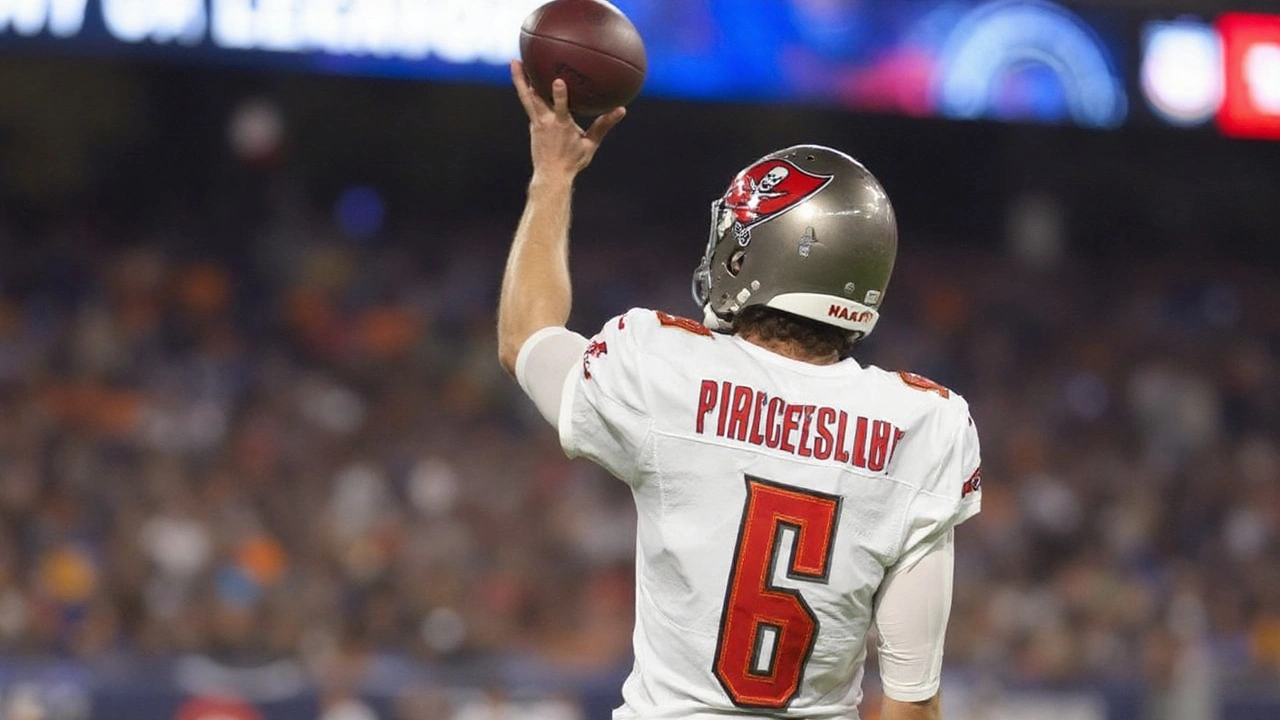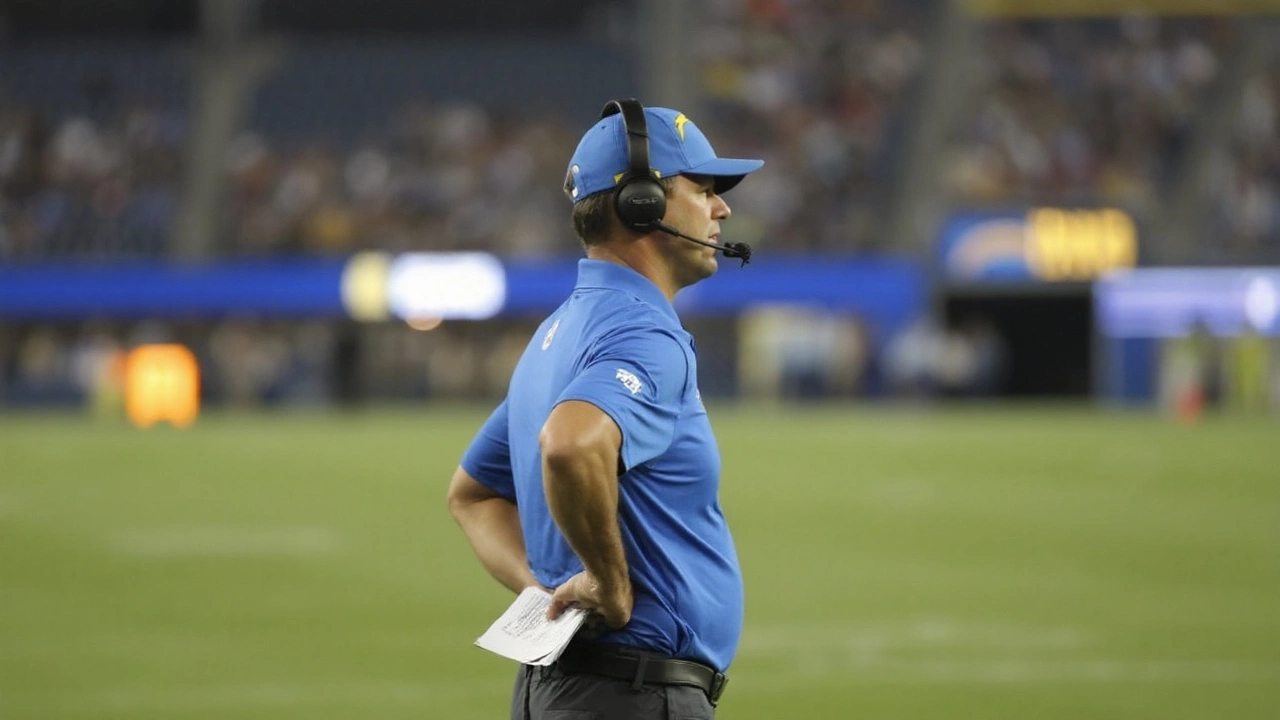Herbert’s deep strike breaks open a bruising rivalry win
The first play told the story for Las Vegas: a forced throw into coverage and an interception that put the Raiders on the back foot in a hostile primetime setting. By the time the lights settled, the Los Angeles Chargers had a comfortable Monday Night Football win, a 2-0 start, and a quarterback who looked in complete command.
The moment that broke the game came just before halftime. With the Chargers already nudging ahead, Quentin Johnston slipped free down the right sideline, and Justin Herbert dropped a 60-yard rainbow right into his stride. The score pushed the lead to 20-6 and took the air out of the Raiders’ sideline. Not flashy for flash’s sake—clinical, decisive, and perfectly timed. It was the throw that turned a tight game into a chase the Raiders never caught.
This didn’t start as a fireworks show. The Chargers eased into it, felt out coverages, and took the routine gains the defense allowed. Then the rhythm hit. Herbert started layering the ball to every level—quick outs to stay on schedule, crossers to punish soft zones, and that deep shot to Johnston when the Raiders bit on underneath action. The balance was the point: calm early, aggressive when it mattered.
Los Angeles didn’t play clean wire-to-wire. They’ll admit there’s work to do with third-down conversions, red-zone trips, and a few penalties that stalled promising drives. The difference on the night was how they handled those rough patches. Instead of folding, they took the ball back on defense, strung together a two-minute drill, and made the decisive play. Good teams make their best throw right before the break. The Chargers did exactly that.
Johnston’s touchdown doubled as a statement about his role. He found space, tracked the ball, and finished. That’s the reliable, field-stretching version the Chargers have been waiting to unlock. It also says a lot about Herbert’s trust. He looked off the safety, held the window, and gave Johnston a chance to run through the catch rather than fight through contact.
On the other side, the Raiders’ offense put their defense in bad spots all night. Geno Smith forced windows that weren’t there, pressing into double coverage more than once. Three interceptions tell you how that went. The last one, with 5:58 left, sealed it—Smith tried to fit a touchdown to Jakobi Meyers, the ball popped up off a hand, and Chargers corner Donte Jackson came down with it. That was the bookend to the very first play giveaway.
If you want the diagnostic, it’s simple: Las Vegas couldn’t hit anything downfield. Smith went 0-for-12 on throws traveling 10 or more air yards. That’s not a blip; that’s a shutoff valve. It also sharply contrasted with his opener against New England, when those same throws found their mark. On Monday, timing was late, leverage reads were off, and the Chargers’ secondary disguised coverage well enough to bait risky decisions.
The injuries didn’t help. Tight end Brock Bowers was cleared after a knee concern during the week, but he didn’t look close to full speed. He finished with five catches for 38 yards, only one of them before halftime, and he wasn’t moving with his usual burst after the catch. If he’s not right, the Raiders lose their best mismatch option against nickel looks and tight red-zone windows.
Credit the Chargers’ defense for making those limitations worse. They mixed coverages, stayed disciplined on deep shots, and tackled well enough to prevent broken plays from turning into momentum. When the Raiders tried to push the ball beyond the sticks, Los Angeles won leverage and made Smith throw late or throw blind. That’s how tipped balls and errant throws pile up.
Herbert’s composure in primetime continues to be the hinge for Los Angeles. He handled pressure with quick answers—hot routes, checkdowns, and clean pocket movement—and then took calculated shots when the Raiders brought help into the box. It wasn’t just arm talent; it was control at the line, changing protections, nudging receivers with hand signals, and playing to the Raiders’ tells.
The Chargers’ staff won’t love every detail on the tape. Third-and-medium was a grind. A couple of red-zone snaps were messy. And penalties invited the Raiders to hang around longer than they should have. But winning inside the division while ironing out those issues is a luxury they haven’t always had. At 2-0, they’ve banked cushion in a race that’s usually decided by one-possession games and tiebreakers.
For Las Vegas, the path forward is clear and not easy. Protect the ball, build a rhythm with scripted, high-percentage throws, and use pace to keep defenses out of their exotic looks. Simplify the reads, get the ball out on time, and lean on route concepts that create space without demanding hero throws. If Bowers’ knee limits him, they need another chain-mover to show up in the middle of the field, because forcing vertical shots when the defense sits on them is asking for turnovers.
There were bright spots for the Raiders’ defense in the first quarter—tight coverage, a rush that made Herbert work through his progressions, and a couple of early stops that kept the score reasonable. But field position flipped too often, and the secondary lost its shape on the backbreaking deep ball. Against quarterbacks who throw with anticipation, one lapse becomes a headline.
The Chargers don’t get style points, but they got what they needed: a clean win over a rival, evidence that their passing game can hit over the top, and a defense that cashes in mistakes. If they clean up the self-inflicted stuff—especially those third downs and the flags—they’ll be a problem for anyone. For now, they’re alone at the front of the division and carrying the kind of confidence that travels.

The game in five snapshots
- Record check: Chargers 2-0, Raiders 1-1. Los Angeles sits atop the AFC West after a divisional primetime win.
- The dagger: a 60-yard touchdown from Herbert to Quentin Johnston with under two minutes left in the first half, stretching the lead to 20-6.
- Turnovers tell it: Geno Smith threw three interceptions, including one on the first offensive snap and another with 5:58 to play that ended the comeback push.
- No vertical threat: Smith went 0-for-12 on attempts traveling 10+ air yards, a sharp drop from his Week 1 success.
- Health watch: Brock Bowers played through a knee issue but looked limited, finishing with five catches for 38 yards.
Next for both teams is about adjustment. The Chargers will chase cleaner situational football around a passing attack that’s already humming. The Raiders need structure and patience back in their offense, plus a healthy Bowers, if they want their early-season momentum to stick.

